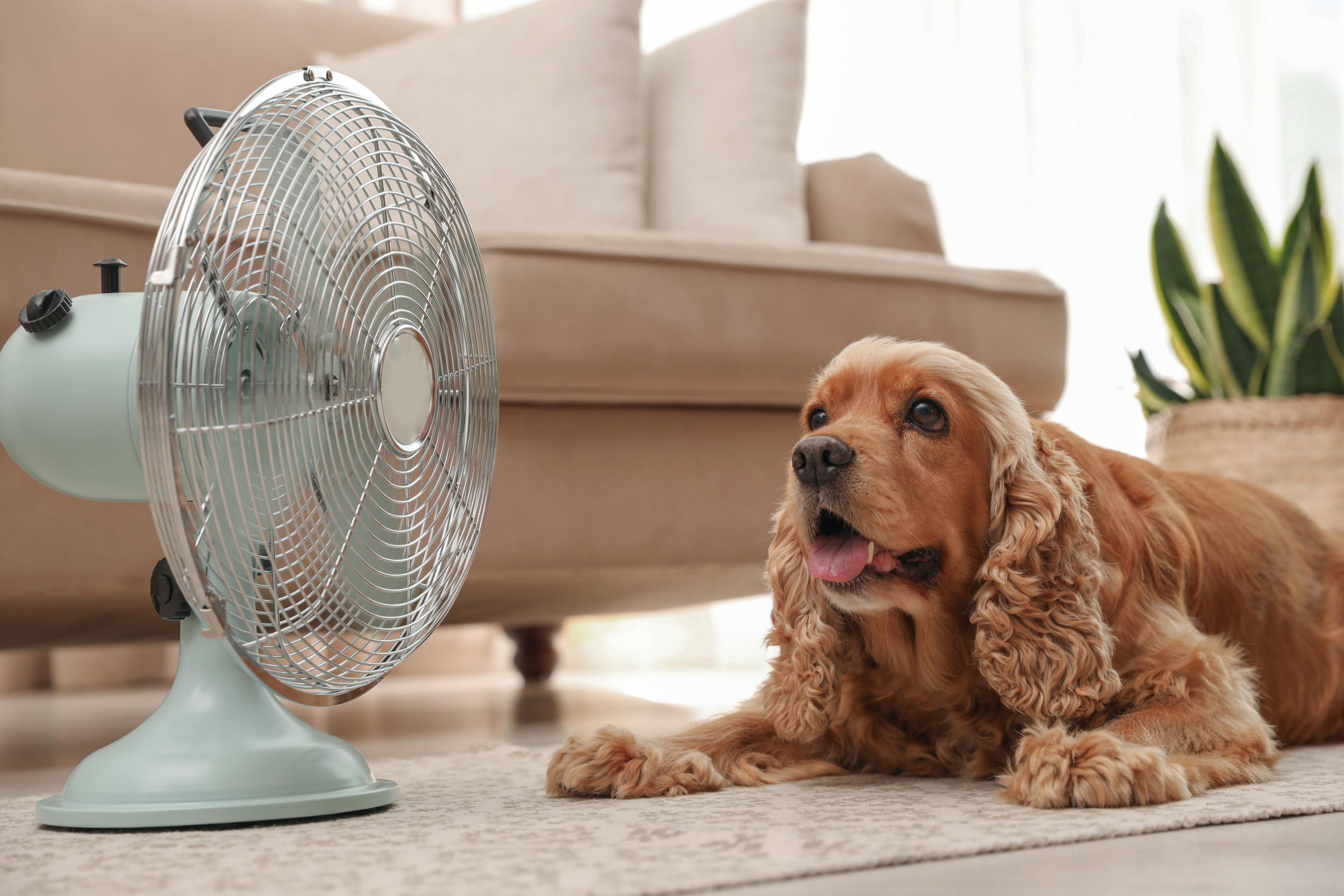Babies and young children are much less adept at self-cooling than adults. “Young children are typically less sensitive to changes in ambient temperature and cannot respond as effectively as adults,” says Dr Dan Baumgardt, a GP and senior lecturer in the school of physiology, pharmacology and neuroscience at the University of Bristol. “One of the reasons is that sweat glands in young children are immature, meaning they struggle to regulate their body temperature.” There are specific recommendations for keeping babies and children safe during a heatwave.
Dress them in loose, light-coloured clothing and sunhats with wide brims as well as sunglasses to protect the eyes, keeping them in the shade as much as possible. Reapply sunscreen regularly (at least every two hours).
Make sure they take enough fluids to stay cool and prevent dehydration. Give young children plenty of fluid-containing foods such as fruit and salad vegetables. For babies, the NHS advice is to stick with water or their usual milk as drinks although you can try giving them frozen lollies made from either plain water or, at meal times only, very diluted fruit juice.
Government advice for teachers and sports coaches is that children shouldn’t take part in vigorous activity outdoors on very hot days — be aware that too much running around in the park or garden will carry similar risks.
The NHS suggests keeping children out of the sun between 11am to 3pm and that paddling pools positioned in the shade are a good idea provided always supervised.
Avoid covering strollers and prams with a dry cloth in an attempt to shade from the sun — it could backfire. Research from the University of Sydney showed that, after just 20 minutes, temperatures inside a pram or pushchair were up to 3.7C hotter than outside when covered with a dry cloth. Draping a loose, damp cloth over a pushchair reduced temperature inside by 3C and the addition of a clip-on fan lowered it further by 4.7C because it encouraged the evaporation of heat.
At bedtime, the NHS suggests giving babies a cool bath and keeping nightwear to a minimum, maybe just dressing them in a nappy with a single well-secured sheet. “Keeping track of the number of wet nappies per day and night is a good indicator of hydration status in infants,” Baumgardt says. “If there are fewer wet nappies, check they are getting enough fluids.”
• Don’t sleep naked — the nine best tips on how to sleep in the heat
How to care for the elderly
Heatwaves can affect anyone, but the NHS says that the over-75s are most vulnerable to adverse effects. In 2024 there were 1,311 heat-associated deaths in England, more than expected. The highest rates were in people aged 85-plus, followed by those aged from 75 to 84. “Our bodies find it harder to adapt to more extreme temperatures as we age,” Caroline Abrahams, charity director at Age UK., says “Heat exhaustion, dehydration, and heat stroke can all worsen certain conditions increasing strain on the body, and some medications make people more susceptible to hot weather.”
Stay hydrated. The sensation of thirst decreases with age and this, coupled with a reduced ability to sweat, hampers thermoregulation abilities leaving the elderly more prone to heat illness. “Caffeine and alcohol are natural diuretics,” Baumgardt says. “Elderly people who drink lots of caffeinated tea and coffee might consider switching to plain water or squash in the summer instead.”
Some prescription drugs affect hydration, blood flow or the capacity to sweat, all of which increase heat response. “Be aware that some medications may exacerbate dehydration,” Baumgardt says. “These include the potent diuretic furosemide — commonly used for patients with heart failure — which can trigger dehydration through water loss in urine, and an imbalance in electrolytes like sodium and potassium.”
Consider rehydrating drinks containing electrolytes, or salts, over plain water. Researchers at Sweden’s renowned Karolinska Institute showed that the risk of hyponatremia, a potentially dangerous electrolyte imbalance that is a result of sodium levels in the blood dropping and is often caused by excess consumption of plain water, increases more than tenfold during heatwaves in people aged 80 years or older. Results of their study in the Journal of the American Society of Nephrology showed hyponatraemia incidence “increases sharply at temperatures above 20 degrees”. Our bodies need sodium to regulate fluid balance in and around our cells, they said.
The NHS says that people with long-term illnesses including dementia, heart and lung conditions are more vulnerable to heat illness so we need to keep an eye on them. Check with a GP in case your medication is affecting your body’s ability to cool itself. “Overheating may also exacerbate existing medical conditions like diabetes and lung or kidney disease,” Baumgardt says.
Take a cool shower, splash yourself with cool water or apply a damp cloth to the back of your neck to cool the skin. “Sprinkling your clothes with water regularly and splashing cool water on your face also helps with temperature regulation,” Abrahams says.
The Met Office advises wearing a wide-brimmed hat and sunscreen and, if you have to go out in the heat, to walk in the shade. Try to keep out of the sun between 11am to 3pm when the UVA rays are at their strongest.
Keep your house as cool as possible. Keep blinds, or curtains closed during the hottest part of the day and limit use of the oven. “Open windows in the evening when the temperature has gone down,” Abrahams says. “Identify the coolest room in the house so you know where to go to keep cool.”
• How to survive a heatwave
How to keep pets cool
Dr Simon Hayes, chief veterinary officer at Creature Comforts, a group of independent vet clinics, gives his advice on what to do for your pets
A good rule of thumb is that if the temperature is going to be 25C or above, do not walk your dog between 8am and 8pm. Walk them earlier or later. Their paw pads are thick and designed to withstand extreme temperatures as well as thorns etc but they will burn their feet if walking on tarmac for a prolonged period.
Also, although many dogs do live in hot climates, you will see they spend a lot of time lying down in the shade. Dogs in the UK are used to a more temperate climate but when it gets hot they will also want to be in a cool spot, resting for much of the time. Make sure they always have access to plenty of water and somewhere cool to rest. They may eat less, which is fine, just like we lose our appetites when it is very hot, but they will also drink more.
Never leave a dog in a car for more than a few minutes, even with a window open. Cars are like greenhouses in the heat and become dangerously hot very quickly. And if your car is not air conditioned, do not take them on long journeys. A good rule to remember is: “Would I do this with my child?”
Tips to keep a dog cool include having cool mats for them to sit on, putting ice chips in their water or putting toys stuffed with treats, like Kongs, in the freezer. Some people use cool vests or bandanas but be aware that these are fine when wet, but once they have dried, they can become like a hot coat and make things worse, so use with caution.
• Heatwaves are hell in my new-build flat
You know when a dog is overheating if it is panting excessively: dogs pant to lose heat in the way that we sweat, but if their tongues are lolling right out, and they are panting more than usual, be aware they may well be too hot. Very dark, red gums, unusual drooling, confusion, vomiting, diarrhoea and even collapse can all be brought on by too much heat. If this happens, spray them with cool — not freezing — water quickly, and get them in front of a fan and, if necessary, to a vet as soon as possible.
With big dogs, over 35kg, take more precautions, because they can overheat very quickly. Also, flat-faced dogs like bulldogs and pugs can have breathing difficulties — I would advise against anything but the most moderate exercise for them. For white or thin-furred dogs, use pet sunblock; sunburn can be very painful and lead to cancer, as it does with humans.
Be aware that our outside lifestyles in the summer can be dangerous for dogs. Every year I see dogs with punctured intestines from kebab sticks and barbecued rib bones. We also see dogs that are intoxicated from drinks that have been left outside. If your dog is outside with you, make sure it has shade and water and keep an eye on what it is eating and drinking.
Cats originate from Egyptian desert animals so have physiologically adapted to heat and will find shade when they go out, but you cannot just ignore them. If you have a cat who stays indoors, be very careful about leaving windows open that usually remain closed — cats can fall from heights and be badly injured. Also, leave all cats plenty of water even if they usually don’t drink very much and ideally have a fan for them.
Cats are creatures of routine but in very hot weather may well go out at different times from usual, so keep your cat flaps open for longer and be ready for some noise! Cats usually avoid certain time slots to go out to avoid conflict with other cats who are around, but when the weather changes their routine will become less rigid, so there can be some fights.
Some cats have thin fur on their ears so use pet sunblock to avoid burns and potentially skin cancer.
If you have any other pet that lives outside such as rabbits or guinea pigs, think about bringing their hutch inside when it is very warm, and certainly make sure it is in the shade.
As told to Anne Shooter
How can I fake air conditioning at home?
By Claire Cohen
Britain’s housing stock tends not to include air conditioning. So how can you fake it instead? One method you might have heard of is to place a bowl of ice or cold water in front of a fan to help to cool the air as it circulates. Which, Mike Tipton, professor of human and applied physiology at the University of Portsmouth, says is “better than fanning with hotter air”. “It won’t make much difference to the temperature of the house or room, but close to the air flow it will feel cooler,” he says.
But if fans are helpful, dehumidifiers are even better. “If you’ve got the option of cooling air or dehumidifying it to remove the humidity, choose the latter,” Tipton says.
You can also mimic the feeling of air con by “creating a chimney effect through the house, where air is drawn through rooms”. Start upstairs: close curtains where windows face the sun and keep the doors to hot rooms shut to stop the heat spreading. Downstairs, close the curtains in south-facing rooms but open all the windows on the north side. If you have an awning, extend it. Close any outside shutters.
“With the smart use of curtains, windows, exterior shade, shutting doors to rooms that get hot, opening doors to rooms that stay cool, using fans or dehumidifiers, you should be able to create a funnel effect to draw air through the house,” he says. “At night, you can open those south-facing windows, security permitting, and cool the house down.”









